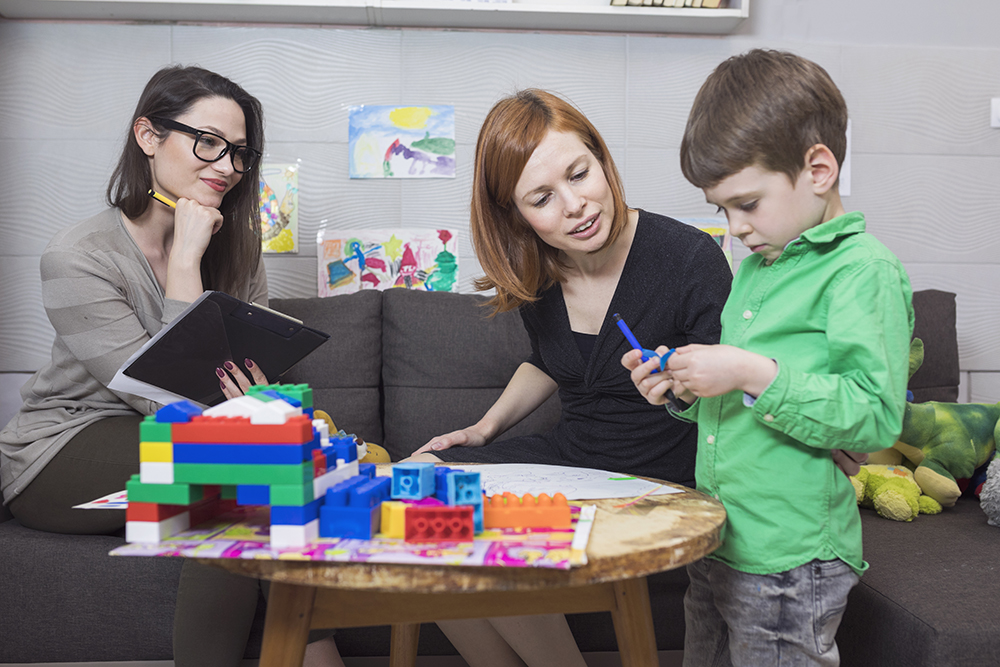Welcome to an exciting journey into the world of kids psychology Adelaide! In this blog, we will delve into various aspects of child development and explore how it shapes their behavior and emotions.
Understanding children's psychology is crucial for parents, caregivers, educators, and anyone involved in the lives of children. It helps us provide them with the support and guidance they need to navigate the challenges of growing up. So let's get started!
The Basics of Child Development
Child development can be divided into several stages: infancy, toddlerhood, preschool years, school-age years, and adolescence. Each stage is characterized by unique milestones that contribute to a child's overall growth.
During infancy, for example, babies learn to crawl, walk, and talk. In toddlerhood, they start to assert their independence, while in the preschool years, they develop basic social skills and engage in imaginative play. School-age years bring further cognitive and social development, and adolescence is a time of significant physical, emotional, and social changes.
Genetics and environment play crucial roles in shaping a child's development. While genetics provide a blueprint, the environment provides the stimuli and experiences necessary for growth. For example, a child may inherit certain physical features from their parents, but their language skills and social behaviors are heavily influenced by their interactions with caregivers and peers.
Cognitive Development
Cognitive development refers to the growth and maturation of a child's thinking abilities. Jean Piaget's theory of cognitive development is widely recognized and provides us with valuable insights into how children's thinking evolves. According to Piaget, cognitive development occurs in four stages: sensorimotor, preoperational, concrete operational, and formal operational.
During the sensorimotor stage (0-2 years), infants explore the world through their senses and develop basic object permanence. In the preoperational stage (2-7 years), children engage in symbolic play and develop language skills. Concrete operational thinking (7-11 years) allows children to understand concepts like conservation and reversibility. Finally, during the formal operational stage (11 years and beyond), adolescents can think abstractly and hypothetically
Play, imagination, and problem-solving play vital roles in cognitive development. Play allows children to practice and refine their skills, while imagination fosters creativity and abstract thinking. Problem-solving, on the other hand, helps children develop critical thinking and logical reasoning.
visit this website - Best Kids Psychology

Emotional Development
Emotional development is essential for children's psychological well-being. Erik Erikson's theory of psychosocial development provides a framework for understanding emotional growth. According to Erikson, children go through various stages with psychosocial challenges to overcome.
For example, infancy is characterized by the trust vs. mistrust stage, where babies develop a sense of trust in their caregivers. Toddlerhood brings the autonomy vs. shame and doubt stage, where children strive for independence. The initiative vs. guilt stage occurs during the preschool years, as children explore their abilities and take on new challenges.
Understanding these stages helps parents and caregivers support children's emotional needs. Common emotional challenges, such as separation anxiety and temper tantrums, can be managed by providing reassurance, setting clear boundaries, and fostering a safe and nurturing environment.
Social Development
Social interactions play a significant role in a child's psychological development. Attachment theory, proposed by John Bowlby, highlights the importance of secure attachment between a child and their primary caregiver. Secure attachment enables children to form healthy relationships and develop trust in others. On the other hand, avoidant attachment can lead to difficulties in forming close bonds.
Peers and family dynamics also contribute to a child's social skills. Interacting with peers allows children to learn social norms, cooperation, and empathy. Positive family dynamics, such as open communication and warm relationships, foster healthy social development.
Fostering healthy friendships and promoting positive social behaviors can be achieved by encouraging empathy, teaching conflict resolution skills, and modeling respectful and inclusive behavior.
Behavioral Issues
Understanding kids psychology Adelaide is essential in identifying the underlying causes of behavioral issues. Common behavioral issues observed in children include aggression, defiance, and attention problems. These behaviors can stem from various factors such as emotional distress, lack of communication skills, or environmental stressors.
Addressing behavioral challenges effectively requires a multifaceted approach. It involves open communication, setting clear expectations, positive reinforcement, and providing appropriate consequences for negative behaviors. Seeking professional help, such as therapy or counseling, may also be necessary in some cases.
Conclusion
Understanding kids' psychology is an ongoing journey that requires patience, empathy, and a willingness to learn. By gaining insights into child development, cognitive growth, emotional well-being, social interactions, and behavioral issues, we can better support children's overall well-being and help them reach their full potential.
Applying the knowledge gained from this blog in your interactions with children will create an environment that fosters healthy development and enduring relationships. So let's embark on this exciting journey into the fascinating world of kids' psychology together!
Comments
Post a Comment